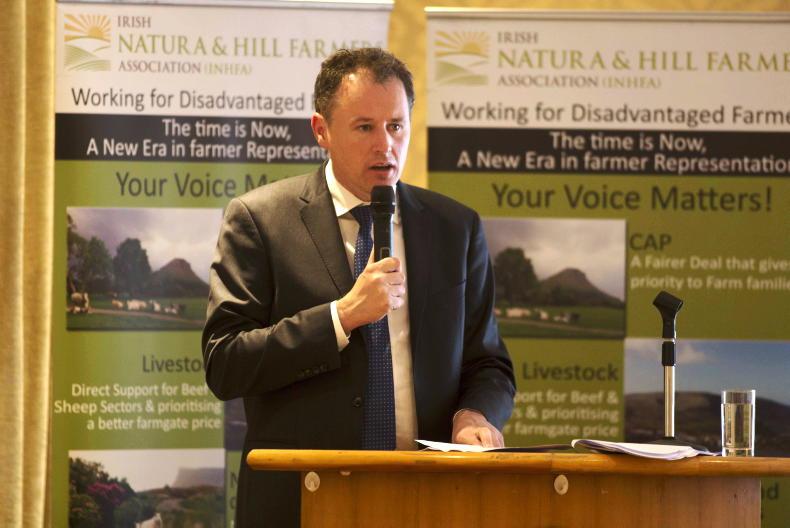Hill farmers, who buy in a lot of their fodder, will see "very little benefit" from the €100/ha silage and hay scheme announced last month by Minister for Agriculture Charlie McConalogue, the Irish Natura and Hill Farmers Association (INHFA) has said.
INHFA president Vincent Roddy said at its AGM in Carrick-on-Shannon last Thursday that additional supports on schemes to assist farmers with spiralling costs are needed.
"There are some farmers, especially in hill areas, that are not in the position to make hay or silage and buy in all their fodder supplies," he said.
Farmers need support and certainty
"Farmers need support and certainty," he said and called on Minister McConalogue, who attended the meeting, to consider top-up payments to existing schemes, such as the Sheep Welfare Scheme, our suckler support schemes and the Areas of Natural Constraint (ANC) as a mechanism to pay farmers.
By topping up payments on existing schemes, farmers will, he said, "have the flexibility to decide how best they can meet their fodder requirements, whether that be silage, hay or meal".
Moving beyond the immediate concern around hay and silage, Roddy pointed to growing concern around the price of animal meal.
High demand
This, he said, is always in high demand come autumn and winter, as farmers try to finish stock and additional support will be essential in supporting the overall trade.
The AGM also saw calls for a new approach on forestry, with the focus being trees on the farm rather than trees replacing the farm.
There was also a call for additional funding of €150m/year for the Pillar II programme of CAP, which the INHFA maintains would deliver improved support for suckler and sheep farmers and greater access to the new agri-environment programme.
With regard to the AECM, concern was expressed to the Minister relating to access and the proposed scorecard that will determine payment rates.
Roddy said that this is a major concern, especially on commonages where individual farmers don’t have full control of the land area.
"Another issue of huge concern was land designations and their restrictive nature, which continues to undermine farming activity and income," Roddy said.
In addition to this, proposals under the EU Biodiversity strategy to dramatically increase the area of land designated and introduce an even more restrictive designation type were outlined.
On this, a number of contributors made the point that any such proposal must be discussed in the Oireachtas and with all relevant stakeholders, before any decision is reached, Roddy said.






 This is a subscriber-only article
This is a subscriber-only article











SHARING OPTIONS: